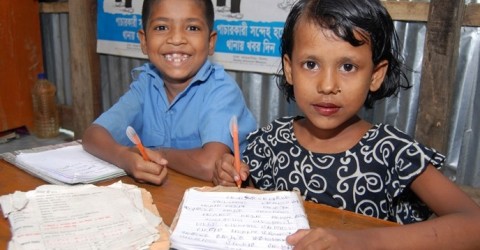
GCED Basic Search Form
Quick Search
当前位置
新闻

UNESCO Governing Bodies approved a new report on the Right to education produced by the Education Sector, drawing on the national reports submitted by UNESCO’s Member States.
This comprehensive report presents the results of the Ninth Consultation of UNESCO’s Member States on the implementation of UNESCO’s Convention and Recommendation against Discrimination in Education. Launched in 2016, this consultation involved 67 UNESCO Member States. The information contained in the national reports generally provides an extremely valuable resource for research and analysis, experience- and knowledge-sharing, and ultimately advocacy.
An interesting finding of the report is that countries seized on this periodic reporting exercise as a valuable opportunity to outline the challenges they face and to take stock of progress and reflect on how to overcome difficulties. The report highlights that the challenges are often crosscutting and intersectoral, making them more difficult to address.
In particular, the report points out serious challenges with regard to equity and inclusion. Socio-economic factors, poverty, ethnicity, location and gender account for significant patterns of discrimination and exclusion in education. Persistent harmful practices and attitudes stand in the way of many children and adults and deprive them of meaningful educational opportunities.
Difficulties relating to the quality of education were equally widely shared by countries, along with budgetary constraints and sometimes lack of governance, coordination and monitoring capacities.
The report also exemplifies the various measures adopted at the national level to ensure that education is provided to all in a discrimination-free environment.
The report notably shares the positive measures reported by countries to guarantee inclusion in education, notably for girls and women, refugees, persons with disabilities and indigenous peoples, which is critical to advance SDG4.
Fostering synergies and building on good examples is key to ensuring the right to education translates into a concrete reality for all. It also provides an opportunity to establish constructive dialogue with all stakeholders – including civil society organisations.
Moreover, following UNESCO Governing Bodies’ decision approving the online publication of national reports submitted by countries, all reports will be made available through UNESCO’s Global Database on the Right to Education. The Global Database, which gives access to country-specific information under constitutional, legislative and policy frameworks, is an important way to assist countries in implementing the right to education and the 1960 Convention and Recommendation.
- More information on the Right to education
- Other publications related to the right to education
